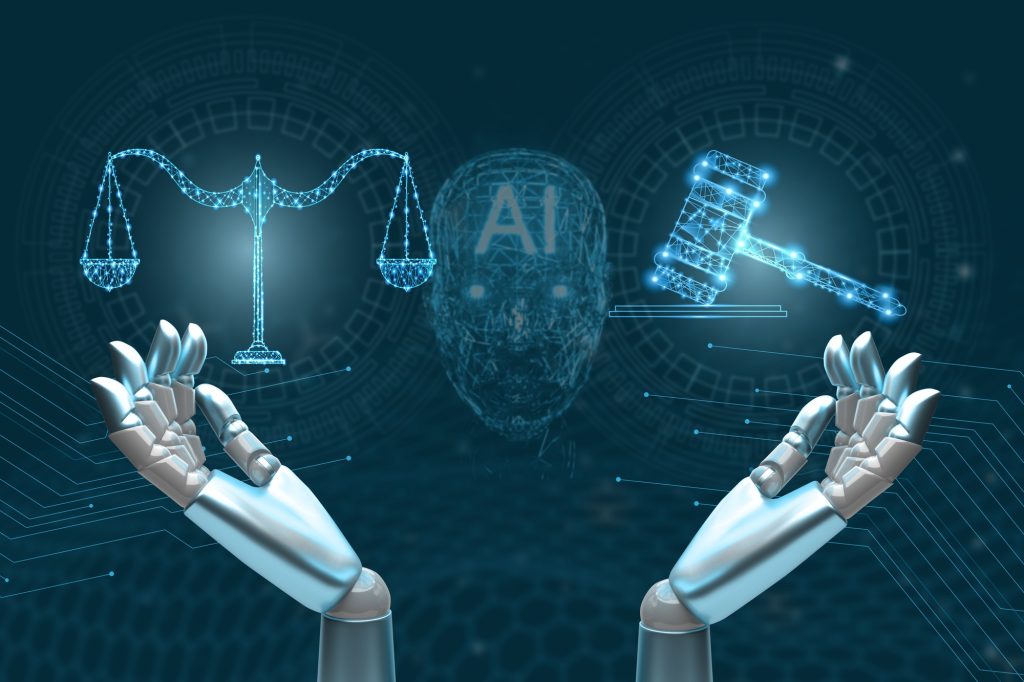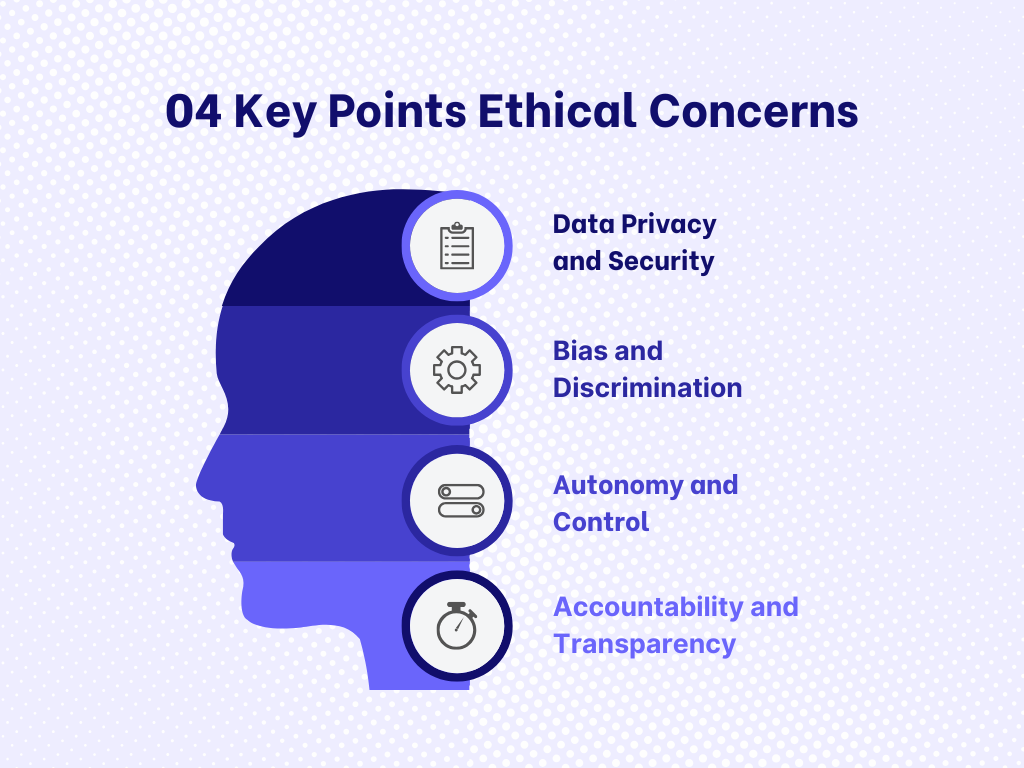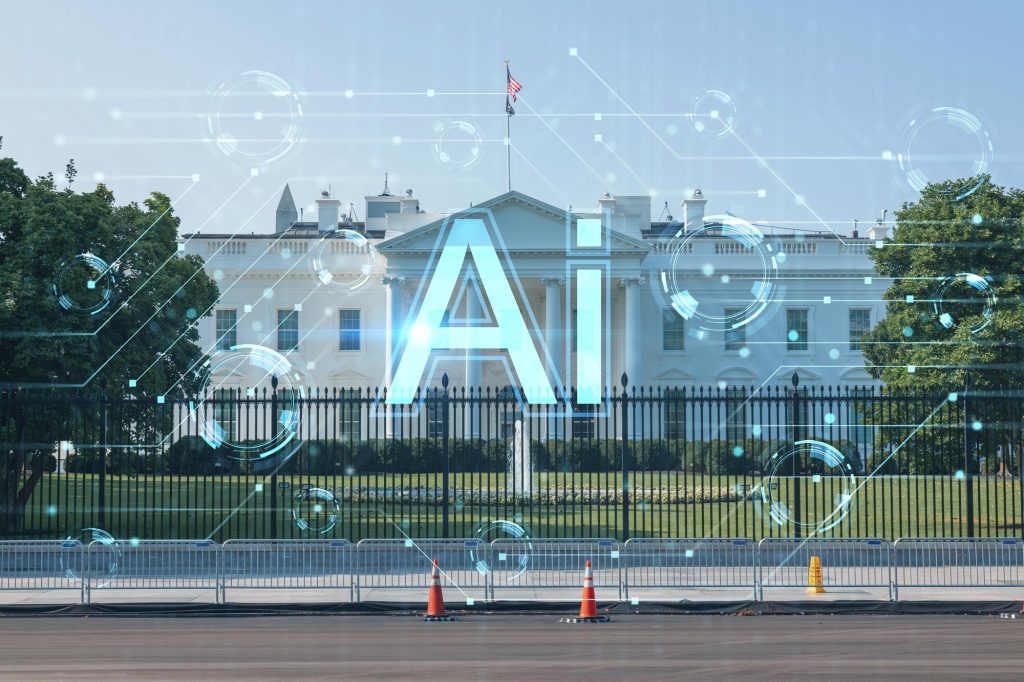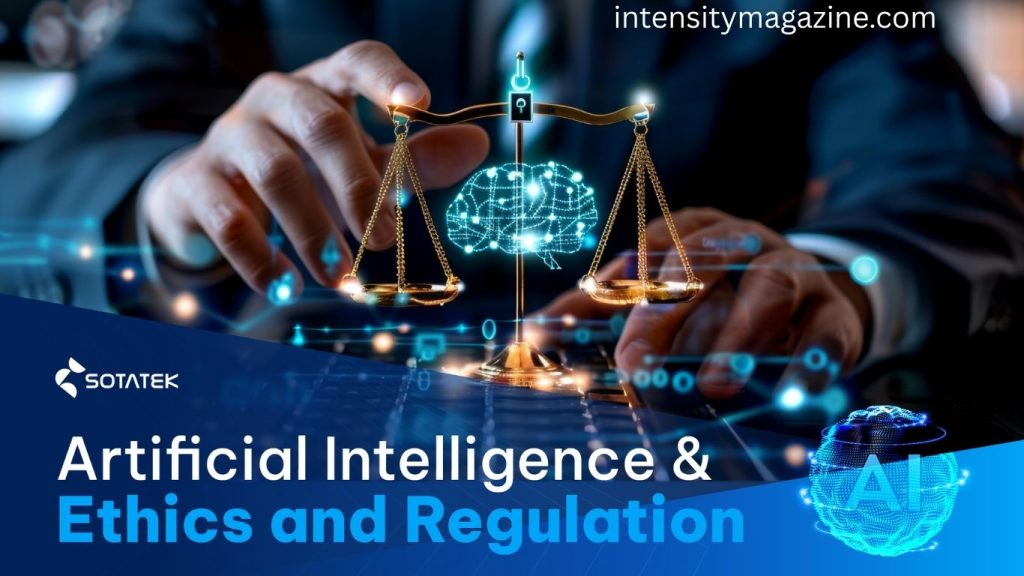Artificial Intelligence (AI) has shifted from being a futuristic dream to an everyday reality. From virtual assistants to automated factories and life-saving healthcare tools, AI is reshaping industries and daily life at lightning speed. Yet, with this rapid progress comes an equally urgent debate: how do we ensure AI serves humanity responsibly?
Concerns over privacy, bias, transparency, and accountability highlight the pressing need for clear ethical standards. Regulators, businesses, and developers now face a defining challenge—advancing innovation without compromising human values. This article explores the ethical challenges surrounding AI, the role of regulation, and the steps industries must take to ensure responsible deployment.
Why AI Ethics Matters More Than Ever
AI ethics refers to the principles and standards guiding how AI should be built and used. As AI penetrates critical areas such as finance, healthcare, law enforcement, and employment, ethical considerations are no longer optional—they are fundamental.

Ethical AI isn’t just about avoiding harm; it’s about building trust and fairness into the systems that increasingly shape our decisions and opportunities. Without strong ethical foundations, the potential of AI risks being overshadowed by misuse, inequality, and loss of public confidence.
Read More: The 6G Revolution: When Will It Arrive and How Will It Transform 5G and 4G LTE Forever
Three pillars define AI ethics:
Bias – Algorithms often mirror historical data, meaning they can reproduce systemic prejudices. In hiring, lending, or policing, this can lead to discriminatory outcomes.
Transparency – Many AI systems function as “black boxes,” making decisions that even their creators struggle to explain. Lack of clarity erodes trust in high-stakes environments like healthcare or criminal justice.
Accountability – When AI makes mistakes, who takes responsibility—the developer, the company, or the user? This unresolved question lies at the heart of AI’s ethical dilemmas.
Key Ethical Challenges in AI

AI’s integration across industries introduces both opportunities and risks. Here are the most pressing concerns:
Data Privacy and Security
AI systems thrive on data, but reliance on personal information raises urgent questions about consent and protection. How is data collected? Who controls it? And how safe is it from cyberattacks? Mismanagement of sensitive data can cause irreversible harm to individuals and society.
Bias and Discrimination
Biased algorithms can reinforce social inequalities. For instance, recruitment AI trained on historical hiring patterns may unfairly favor certain demographics. Such outcomes not only discriminate but also damage public trust in AI-driven systems.
Autonomy and Human Control
As AI becomes more autonomous—driving cars, trading stocks, diagnosing illnesses—the boundaries between human and machine decision-making blur. Striking the right balance between automation and oversight is essential to prevent unintended consequences.
Accountability and Transparency
When AI influences life-altering outcomes, such as approving loans or medical treatments, transparency is critical. Without clear accountability, errors risk being dismissed as “system glitches” instead of preventable failures.
Government and Industry: Shaping AI Regulation

AI’s ethical challenges demand thoughtful regulation. Across the globe, governments are stepping up with frameworks designed to guide safe deployment.
European Union: The EU’s landmark AI Act classifies AI applications by risk, banning harmful uses and demanding transparency for high-risk systems. This proactive stance positions Europe as a global leader in ethical AI governance.
United States: Regulation remains fragmented, with states creating sector-specific guidelines. While flexible, this approach sparks debate over whether a unified federal policy is necessary to address AI’s growing national impact.
Industry leaders also play a pivotal role. Tech giants like Google, Microsoft, and IBM are implementing internal ethical frameworks, recognizing that self-regulation is vital to maintaining public trust. However, corporate guidelines alone cannot replace binding global standards. True progress requires collaboration between governments and companies.
Tech Companies Leading the Way in Ethical AI
Among innovators, Microsoft has emerged as a strong advocate for responsible AI. Its Aether Committee (AI, Ethics, and Effects in Engineering and Research) oversees initiatives to ensure fairness, accountability, and transparency in AI development.
Seeing AI App – Designed for the visually impaired, this app uses AI to describe surroundings and read text aloud. Microsoft prioritized privacy and inclusivity, collaborating with disability advocates to refine the technology.
Responsible AI Standard – A framework guiding Microsoft’s projects, ensuring ethical considerations are built into product design.
Partnership on AI – Co-founded with other tech companies, this initiative fosters cross-industry collaboration to create global standards for ethical AI.
By embedding ethical values into development, companies like Microsoft demonstrate that innovation and responsibility can go hand in hand.
Steps Businesses and Developers Can Take
Governments and big tech aren’t the only players responsible for AI ethics. Businesses and developers across industries must also embrace responsibility. Key actions include:
- Implement Ethical Guidelines – Create internal frameworks that prioritize fairness, transparency, and accountability at every stage of development.
- Invest in Education – Train developers and data scientists to recognize and address ethical risks. Ongoing learning is crucial as standards evolve.
- Establish Ethics Boards – Independent committees can provide oversight, helping companies navigate complex ethical dilemmas.
- Continuous Monitoring – Regular audits of AI systems ensure they remain aligned with ethical principles as technology advances.
Building Global Standards: The Path Forward
AI is a global phenomenon, making international cooperation essential. Without aligned standards, risks such as biased algorithms, privacy violations, and unchecked surveillance could multiply.
Future progress depends on:
Cross-Border Collaboration – Nations must work together to establish shared ethical guidelines and enforcement mechanisms.
Human-Centered Design – AI should prioritize human welfare, dignity, and fairness above efficiency alone.
Public Engagement – Policymakers and developers must involve citizens in shaping AI governance to build widespread trust.
Frequently Asked Questions:
What does AI ethics mean?
AI ethics refers to the principles and guidelines that ensure Artificial Intelligence is developed and used responsibly. It focuses on fairness, transparency, accountability, and respect for human rights.
Why is AI ethics important today?
As AI influences hiring, healthcare, finance, and law enforcement, ethical standards are critical to prevent bias, protect privacy, and maintain public trust.
What are the biggest ethical concerns in AI?
The key concerns include data privacy, algorithmic bias, lack of transparency, accountability gaps, and the growing autonomy of AI systems.
How can AI bias be reduced?
Bias can be minimized by diversifying training datasets, conducting regular audits, and ensuring diverse teams design and test AI systems.
Who is responsible when AI makes a harmful decision?
Responsibility may fall on developers, deploying companies, or regulators. Clear accountability frameworks are needed to avoid “black box” blame.
How are governments addressing AI ethics?
Governments are introducing AI regulations such as the EU’s AI Act, which regulates high-risk AI uses and demands transparency. Other countries are developing sector-specific guidelines.
What role do tech companies play in ethical AI?
Tech giants like Microsoft, Google, and IBM are creating internal ethical frameworks and collaborating through global initiatives like the Partnership on AI.
Conclusion
Artificial Intelligence is no longer a distant concept—it is shaping industries, economies, and everyday life. But with this unprecedented power comes an equally great responsibility. The ethical debate surrounding AI is not about limiting progress; it is about ensuring that innovation benefits humanity rather than harming it. By addressing bias, ensuring transparency, protecting privacy, and establishing accountability, we can create AI systems that are both powerful and trustworthy.



